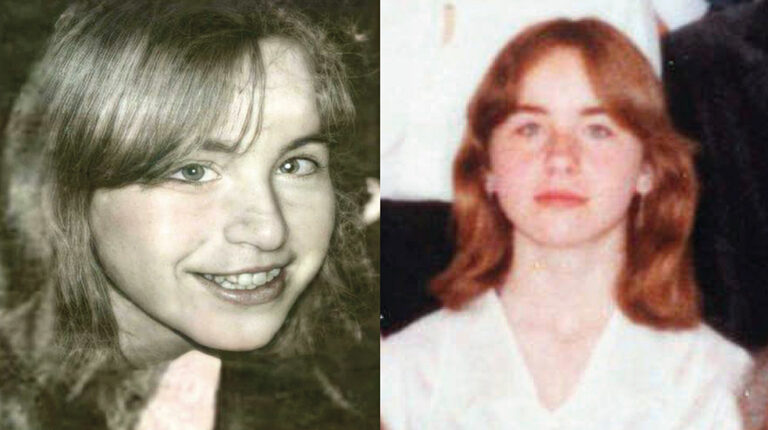
The story of Elisabeth Fritzl is one of unimaginable horror and remarkable resilience. Abducted and imprisoned by her father, Josef Fritzl, in a basement dungeon for 24 years, Elisabeth endured and survived a nightmare that shocked the world. Today, we explore the current life of Elisabeth Fritzl, her journey of survival and recovery, and how she has managed to reclaim her life from the shadows of her traumatic past.
The Nightmare Unfolds
In 1984, at the age of 18, Elisabeth Fritzl was lured into the basement of her family’s home in Amstetten, Austria, by her father, Josef Fritzl. There, she was drugged, handcuffed, and imprisoned in a secret cellar that Josef had constructed over the years. Elisabeth’s captivity lasted for an agonizing 24 years, during which she was repeatedly raped by her father, giving birth to seven children, three of whom were kept with her in the basement, while the other three were raised by Josef and his wife, Rosemarie, under the pretense that they had been abandoned on their doorstep.
The world learned of Elisabeth’s harrowing ordeal in April 2008, when she and her children were finally freed. The details of their captivity stunned and horrified the public, leading to widespread media coverage and a subsequent trial that saw Josef Fritzl sentenced to life imprisonment. But for Elisabeth and her children, the end of their physical captivity was only the beginning of their journey toward healing and recovery.

Life After Freedom: The Initial Steps
In the immediate aftermath of their liberation, Elisabeth and her children were placed under the care of medical and psychological professionals who specialized in trauma recovery. They were provided a safe and secure location, away from the prying eyes of the media and the public, to begin their healing process. The initial focus was on addressing their physical health needs, as years of malnutrition and lack of sunlight had taken a toll on their bodies.
Psychological support was equally crucial. Elisabeth and her children had endured severe trauma, and it was essential to help them process their experiences and begin to rebuild their lives. Therapists employed various techniques to address the complex PTSD and other mental health issues they faced. Gradually, they began to adapt to their newfound freedom and the world outside the basement.
Rebuilding Family Bonds
One of the most challenging aspects of Elisabeth’s recovery was rebuilding her relationship with her children. The three children raised above ground had a vastly different upbringing than those who had spent their entire lives in the basement. Bridging this gap requires patience, understanding, and professional guidance.
Elisabeth worked tirelessly to create a sense of normalcy and stability for her children. They were given new identities to protect their privacy and enrolled in schools to catch up on their missed education. Elisabeth’s love and dedication played a crucial role in helping her children adjust to their new lives. Over time, the family began to heal, drawing strength from their shared experiences and mutual support.
Elisabeth Fritzl Now: A New Beginning
As of now, Elisabeth Fritzl lives a life far removed from the horrors of her past. She resides in a secret location in Austria, under constant protection and anonymity. This has been essential in allowing her and her children to live without fear of being recognized or harassed by the public or the media.
Elisabeth has found solace in leading a quiet, private life. She has built a new identity and remains focused on her and her children’s well-being. Despite her unimaginable trauma, Elisabeth’s resilience and determination to move forward have been genuinely inspiring.

The Role of Therapy and Support
Therapy has been a cornerstone of Elisabeth’s recovery journey. She continues to receive psychological support to help manage the long-term effects of her trauma. Various therapeutic approaches, including cognitive-behavioral therapy (CBT), trauma-focused therapy, and family therapy, have been instrumental in her recovery process.
Elisabeth’s story also highlights the importance of a robust support system. Friends, family, and professionals have been critical in her healing journey. The unconditional support and understanding from those around her have provided a foundation for Elisabeth and her children to rebuild their lives.
Advocacy and Awareness
While Elisabeth has chosen to live a life away from the public eye, her story has significantly impacted society. It has brought attention to issues of domestic abuse, child abuse, and the importance of mental health support for trauma survivors. Advocacy groups and organizations have used her case to push for more robust protective measures for victims and better support systems for those affected by similar traumas.
Elisabeth’s story has also catalyzed change in how authorities handle missing persons and abuse cases. It has prompted a reevaluation of investigative procedures and the implementation of more rigorous checks and balances to prevent similar atrocities from occurring.
Moving Forward: Hope and Healing
Elisabeth Fritzl’s journey is a testament to the strength of the human spirit. Despite her unimaginable suffering, she has managed to build a new life for herself and her children. Her story is one of hope, resilience, and the power of healing.
Today, Elisabeth continues to focus on her and her children’s future. They are making strides in their personal and educational lives, slowly but steadily moving forward. While the scars of the past will always remain, Elisabeth’s determination to create a better future for her family shines through.
Conclusion
The story of Elisabeth Fritzl is both heartbreaking and inspiring. It is a stark reminder of the horrors that can occur behind closed doors and a powerful example of human resilience and the capacity for recovery. Elisabeth Fritzl now lives a life characterized by healing and hope, far removed from the darkness of her past. Her journey continues to inspire and educate, shedding light on the importance of support, therapy, and the unyielding strength of the human spirit in overcoming the deepest of traumas.